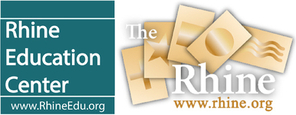Syllabus: Introduction to Parapsychology Spring 2013
About the Course:
The course broadcasts will take place on Monday evenings, and begin at 6:30pm (US Eastern Standard Time). Each broadcast will last 75 – 90 minutes and include a presentation and the opportunity to ask questions. The presentations will be followed by a weekly activity which will be managed via a discussion forum in the Rhine Education Center online courseroom. Each course week will begin on Mondays and discussion posts and assignments will be due by the end of every Sunday with the exception of the week of May 27th, which will have the course broadcast on Tuesday evening due to the Memorial Day holiday in the United States.
The course will be assessed by three components. Two tests comprised of multiple choice and short answer essay questions will be completed online. In addition, engagement with weekly activities will be assessed by students’ participation in the online discussion forums—students are expected to participate in class discussions!
Students will receive a letter grade for their efforts. Every student who passes the 3 assignments and completes the course will be awarded a Certificate of Completion from the Rhine Education Center.
Learning objectives:
- Students will be exposed to the topics under study in scientific parapsychology.
- Students will be presented with the purpose of experimental parapsychology as well as with methods for designing laboratory experiments for psi research.
- Students will be supported in their development of critical thinking when it comes to subjective paranormal experiences.
- Students will be presented with the purpose of spontaneous case research in scientific parapsychology and the value of exploring experience.
Learning outcomes:
- Students will be able to list the varieties of experiences under study in scientific parapsychology.
- Students will be able to discuss the range of methods used in experimental parapsychology and discuss the advantages and disadvantages of different types of experimental design in laboratory tests of psi.
- Students will be able to explain the ways in which critical thinking may be applied to subjective paranormal experiences.
- Students will able to compare the advantages and disadvantages of exploring and investigating seemingly paranormal experience.
Texbook:
Irwin, H. & Watt, C. (2007). Introduction to Parapsychology (fifth edition). Jefferson, NC: McFarland publishers inc.
NOTE: For the purposes of this course, students may purchase earlier versions of this text book, which are a little cheaper, and cover many of the topics covered in the most recent edition of this textbook. However, if this is the case, when students are referred to the book, chapters and page numbers may differ.
Paperback Edition (also available as an ebook for Kindle or Nook):
http://www.amazon.com/Introduction-Parapsychology-Harvey-J-Irwin/dp/0786430591
Weekly breakdown:
Week 1 (April 29th) – Introduction to Parapsychology
Discussion Forum Assignment I
Week 2 – (May 6th) – Extrasensory Perception I
Discussion Forum Assignment 2
Week 3 (May 13th) - Extrasensory Perception II – Correlates of ESP
Discussion Forum Assignment 3
Week 4 (May 20th) – Mind over Matter
Discussion Forum Assignment 4
Multiple Choice and Short Answer Essay Test 1
Week 5 (TUESDAY: May 28th) – Special Topics (Guest Instructor)
Discussion forum assignment 5
Week 6 (June 3rd) – OBEs and NDEs
Discussion forum assignment 6
Week 7 (June 10th) - Apparitions
Discussion forum assignment 7
Week 8 (June 17th) – Modern Research in Parapsychology
Discussion forum assignment 8
Multiple Choice and Short Answer Essay Test 2
Course Assessments
First Assessment (30 %)
Test 1 (Week 4)
Submit online.
Second Assessment (30%)
Test 2 (Week 8)
Submit online.
Third Assessment (40%)
Ongoing participation in discussion forums throughout the course.
All information contained on this page is the sole property of the Rhine Education Center and the Rhine Research Center. This information cannot be reproduced or reused without the expressed written permission of the Rhine Research Center.

